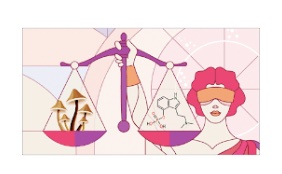Lucid News write
This week Shayla Love reports in Lucid News that there has been an increase in the number of patents filed for psychedelic therapies and compounds. Patents are meant to incentivize innovation, giving the patent holder exclusive rights to their invention for 20 years and allowing them to recoup development costs. Many companies use patents to raise capital, signaling that funders will get a return on their investment as the company profits from its IP.
As Love writes, however, drug patents often lead to patent thickets, high drug prices, and patent trolling. Some in the psychedelics industry are exploring alternative mechanisms for collaborative funding and development. These include online “decentralized autonomous organizations,” or DAOs, operated by members. DAOs could allow therapeutic compounds to be collectively owned by those who use them, or advocacy organizations that could determine how that drug is researched, produced and sold.
Love also notes the promise of IP-NFTs or non-fungible tokens, that could support collective business models and contractual agreements, while allowing for a wider range of funding sources or pooled money managed through the blockchain. IP-NFTs could return money from drug commercialization to a DAO licensing their IP-NFTs to businesses that meet their price or ethics criteria.
IP on the block. As the first wave of public companies in the psychedelic space run out of funding and begin to sell off their IP, these alternatives to the patent system could be increasingly important. In an interview with the podcast Business Trip, Josh Hardman of Psychedelic Alpha noted that when his team looked at how much cash or cash equivalents 50 public companies had on hand at the end of 2022, it totaled only $900 million. More than a dozen public psychedelic companies are already dead and have ceased trading, but may have yet to issue a press release.
Hardman’s team calculated that almost all public companies in the psychedelic space had less than two years cash runway and more than a 25% burn to market cap ratio. Even when adjusted for a year of runway, Hardman said many companies will need to secure another round of funding this year, oversaturating the market for capital and leading to a lively environment for mergers and acquisitions.
Capital challenges. With all the turbulence in crypto, it may take a while for DAOs and IP-NFTs to gain traction with companies developing psychedelic compounds. Despite the risks, these companies will likely need alternative funding models as access to capital continues to be tight. Hardman estimates that it costs $2 to $3 billion to bring a drug to market, including failures. Only a few companies in the space will be able to raise this funding. Many more companies will go out of business and put their patents up for sale.
Some of this IP will likely be snatched up by better financed competitors, or by patent trolls who make money solely from litigating to enforce patents. IP attorney Graham Pechenik says an increase in available patents could also be a dangerous moment. “In lots of other circumstances when IP becomes available, people who purchase IP purchase it for ways to use it for enforcement,” says Pechenik.
Software inspiration? Companies could follow the lead of big tech patent holders like Samsung, Apple and Google who are increasingly embracing patent pools and open source licensing for software. Those that pursue experimental funding structures and IP strategies for psychedelic compounds have an opportunity to influence the evolution of the entire patent system and support collaborative models that benefit the people who most need these therapies. – AH

















